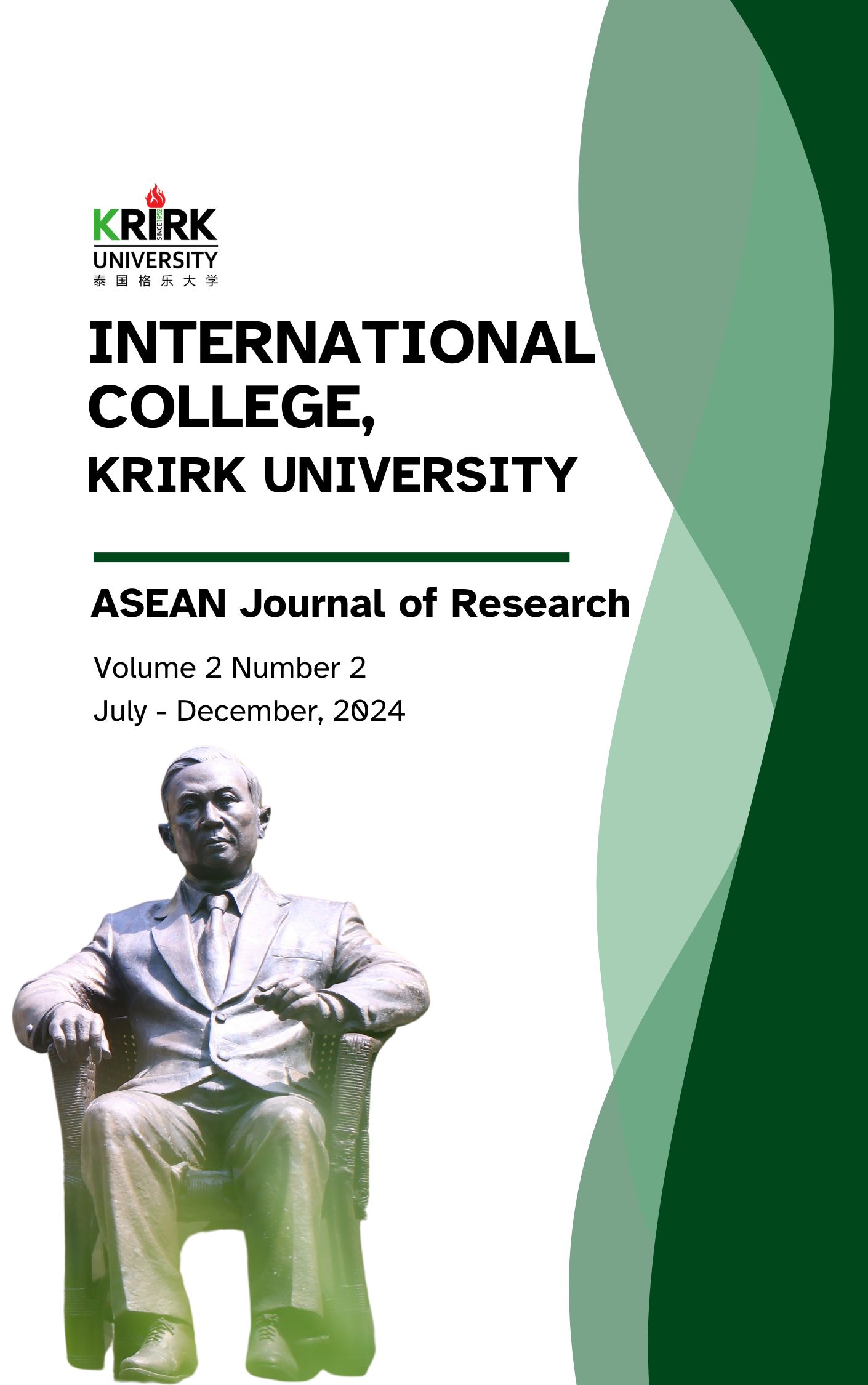Comparative Studies of Gender Discrimination in Ancient Israel (Numbers Chapters 1-11) and Contemporary Nigeria
Keywords:
Gender discrimination, Gender dynamics, discrimination, societal structures, Patriarchal Ideologies and policies, national development, women's advancementAbstract
A study of the book of Numbers (chapters one to eleven) revealed that only males who are twenty years and above are reckoned with in Ancient Israel. The demographic population of Israel in 2020 reveals that the male to female ratio in Israel was 99.1 males per 100 females. Not making the voice of majority of any economy count is a colossal waste that needs immediate intervention. The study thus is a comparative study of gender discrimination of women in ancient Israel and contemporary Nigeria respectively. The research design was descriptive. 120 questionnaires were administered to the leaders, workers and worshippers of the Redeemed Christian Church of God Ebute-Meta and Christ Redeemer Fellowship University of Lagos, Nigeria. 84 copies were retrieved back and subjected to analysis, representing a return rate of 70%. The research engages production/property relations theories. The study revealed that Ancient Israel and Nigeria have similar cultural attitudes to women. Both are patriarchal societies where women are denied access to decision-making and agenda-setting processes and, beyond that, opportunities for leading these processes. This results in the invisibility of women as public actors and violates their rights to equal participation. The church must be dedicated to unapologetic interpretation of the several ambiguities surrounding previous interpretations made on gender issues and be bold to declare the correct and culturally unbiased Biblical ethical stance on gender issues. Likewise, governments must properly and productively engage their constitutionally endowed legislative power to remedy any form of gender discrimination enshrined in laws. Government must put in place policy and laws that will stop child marriage and forbid sexual harassment. All genders should be given a level playing field for equal protection under the law.
References
Aina, I.O. (1998). Women, culture and society” in Sesay, A. & Odebiyi, A. (eds). Nigerian women in society and development. Ibadan: Dokun Publishing House.
Akosile, A. (2010). Nigeria: Women empowerment - pivot for national growth, All Africa, available at: https://allafrica.com/stories/201001280236.html.
Ali, T.S. (2011), Gender roles and their influence on life prospects for women in urban Karachi, Pakistan: A qualitative study, Globehealth Action 4(1), 7448.
Awe, B (1990) The role of women in management in the 90s, Journal of Management in Nigeria, 26(6), 1-9.
Bastola, G. (2007). Gender inequality starts before birth, The Kathmandu Post, XV(69), (April 28), 5.
Beer, G. & Tubingen, M. (1919) Die soziale und religiose stellung der frau in Israelitischen altertum, Sammlung Gemeinverstandliches Vortrate und Schriften aus dem Gebiet der Theologie und Religionsgeschichte, 88, 1.
Collins, S. (1972). Towards a feminist theology. Christian Century 89, 792- 804.
Cuberer, D. & Teignier, M. (2013). Gender inequality and economic growth: A critical review, Journal of International Development, 26(2), 260-76. DOI: https://doi.org/10.1002/jid.2983.
Ejumodo, K.B.O. (2008), Sustainable development in Nigeria: The policy gap and action dilemma, Proceedings of International Conference on Research and Development. Ghana: Pan-African Book Company.
Gennrich, D. (2014). Created in God’s image: A gender transformation toolkit for women and men in churches, revised edition. Pretoria: Norwegian Church Aid, available at: https://www.kirkensnodhjelp.no/contentassets/c2cd7731ab1b4727897258c5d49246c8/nca-createdingodsimage-completebook-jun2015-open2.pdf.
Guarneri, Christine, and Dudley. L Poston Jr. "Patriarchy." Encyclopedia.com. 2008. Web. 18 Mar. 2015.
Kirk-Duggan, C.A. (2012). Precious memories: Rule of law in Deuteronomy as catalyst for domestic violence,” in Brenner, A. & Yee, G.A. (eds.), Exodus and Deuteronomy. Minneapolis: Fortress, 258-88.
Kramarae, C. (1992). The condition of patriarchy, in Kramarae, C. & Dale, S. (eds.), The knowledge explosion, London: Teachers College Press.
Makama, G.A. (2013). Patriarchy and gender inequality in Nigeria: The way forward, European Scientific Journal, 9(17), 101-10.
Nakhai, B.A. (2019). Women in Israelite religion: the state of research is all new research, Religions, 10(2), 122. DOI: https://doi.org/10.3390/rel10020122.
Nigerian CEDAW NGO Coalition (2012) Gender in Nigeria report 2012: Improving the lives of girls and women in Nigeria. Abuja: British Council.
Nugent, D. (1993). Property relations, production relations, and inequality: anthropology, political economy, and the Blackfeet, American Ethnologist, 20(2), 336-62. DOI: https://doi.org/10.1525/ae.1993.20.2.02a00070.
Okpe, O. (2005). Mainstreaming gender in the African development process: A critique of NEPAD and the women question. Nigeria: BSU Press.
Olusola, A.S. (2018). Patriarchy and women abuse: Perspectives from ancient Israel and Africa, Old Testament Essays, 31(2), 339-362.
Pokharel, Samidha (2008). Gender discrimination: Women perspectives, Nepalese Journal of Development and Rural Studies, 5 (2): 80-87.
Schenker, J.G. (2002). Gender selection: Cultural and religious perspectives, Journal of Assisted Reproduction and Genetics, 19, 400-10.
Stacey, J. (1993). Untangling feminist theory, in Richardson, D. & Robinson, V. (eds.), Introducing women’s studies: Feminist theory and practice. London: Macmillan.
Waltke, Bruce (1995). The role of women in worship in the Old Testament, Retrieved on March 12, 2007, http://www.ldolphin.org/waltke.html
Woetzel, J., Madgavkar, A., Ellingrud, K., Labaye, A., Devillard, S., Kutcher, E., Manyika, J., Dobbs, R. & Krishnan, K. (2015). The power of parity: How advancing women’s equality can add US$12 trillion to global growth. New York, NY: McKinsey Global Institute.
Downloads
Published
How to Cite
Issue
Section
License
Copyright (c) 2024 ASEAN Journal of Research

This work is licensed under a Creative Commons Attribution-NonCommercial-NoDerivatives 4.0 International License.
The Copyright belongs to the ASEAN Journal of Research




